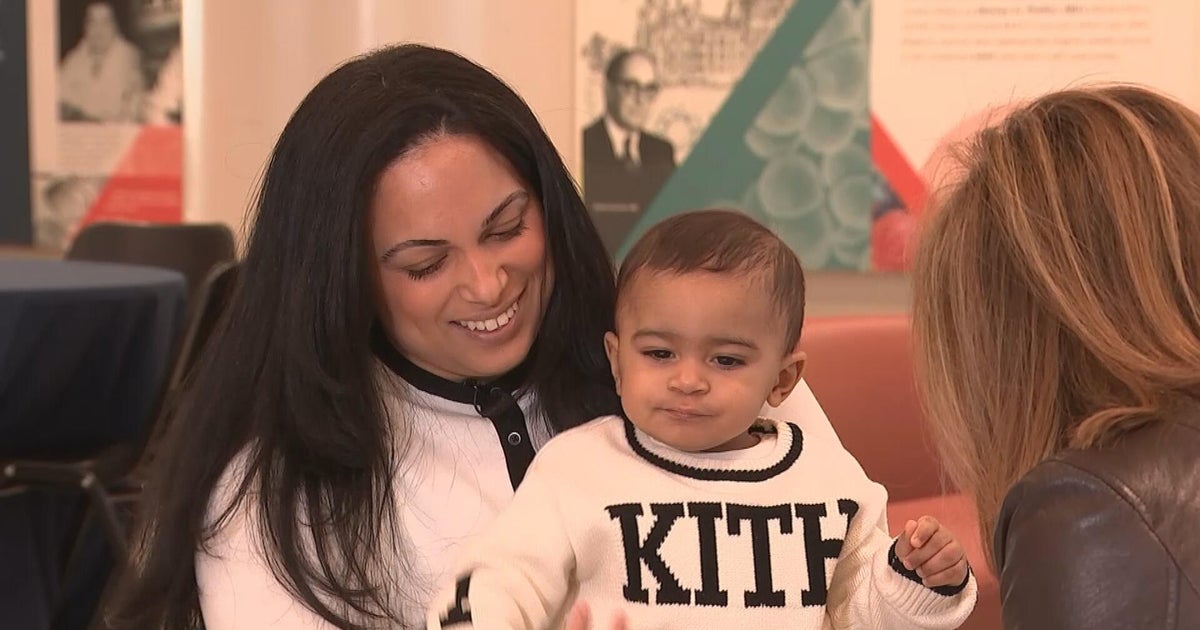'U' Chemists Close To Making Male Birth Control Pill A Reality
MINNEAPOLIS (WCCO) -- What if there was a birth control pill just for men?
That's the potential breakthrough two women at the University of Minnesota think they're close to perfecting.
WCCO's John Lauritsen explains how a plant poison could change family planning by letting men bear the burden.
Sadie Radwany is 9 months old today.
She's getting used to her surroundings while her parents get used to her.
"It's the most fulfilling experience I've ever had in my life. Just having another little person look up at you and smile -- yeah," said her dad, Sam.
As a WCCO web producer, Sam plays the role of working man and family man.
He and his wife aren't ready for baby #2 quite yet which is why he'd consider another option for family planning -- in the form of a male birth control pill.
"We definitely want more kids one day. But she's plenty to handle for us right now," said Sam. "Anything that a guy that could maybe shift the responsibility a little bit, I'm all for that."
Dr. Gunda Georg thinks she has what men like Sam are looking for.
"This one seems to be one of the most advanced and maybe most promising projects that we have right now," said Dr. Georg.
She's talking about a pill that renders sperm temporarily ineffective.
Georg is part of a mostly female team of chemists that has reached halfway around the world for a plant poison that could be a contraceptive game-changer.
"In small doses it actually can be quite good and regulate heart function. But in high doses it will basically, I guess, can kill somebody," said Dr. Georg.
African warriors put Ouabain on darts to kill animals.
But the research team took out that toxin, chemically altered the plant, and then tested it on mice.
"Observed that these mice had sperm, normal sperm more or less, but the sperm did not move," said Dr. Georg.
Paralyzed sperm can't fertilize an egg.
The discovery's so ground-breaking it made the front page of the Scientific Journal.
"To have it finally be closer, I think, is really important. Really exciting," said Dr. Dominique Tobbell.
Dr. Tobbell is a medicinal historian at the U of M.
She said because the drug industry already has effective options for women, it's underestimated interest in a pill for men.
"Majority said, I think it was like 80 percent, close to 90 percent, who said they were interested, they were willing to use it. So there is definitely clear signs that there is demand there," said Dr. Tobbell.
But time and money are obstacles.
A clinical trial and other costs could total well over a million dollars -- meaning it could be five years before U researchers get that far.
Still, there's hope for men…
"I think younger guys, if we want to wait a little while, we just want to be in control a bit, we can definitely take that," said Sam.
...and for chemists, hoping to deliver a new option.
"So far so good and that's why we are pretty excited about the whole thing," said Dr. Georg.
A clinical trial would identify any side effects from the male pill.
Then it would need FDA approval, so it could be five to 10 years before it's available.
The U researchers believe men who don't want vasectomies would also be interested in the pill.







